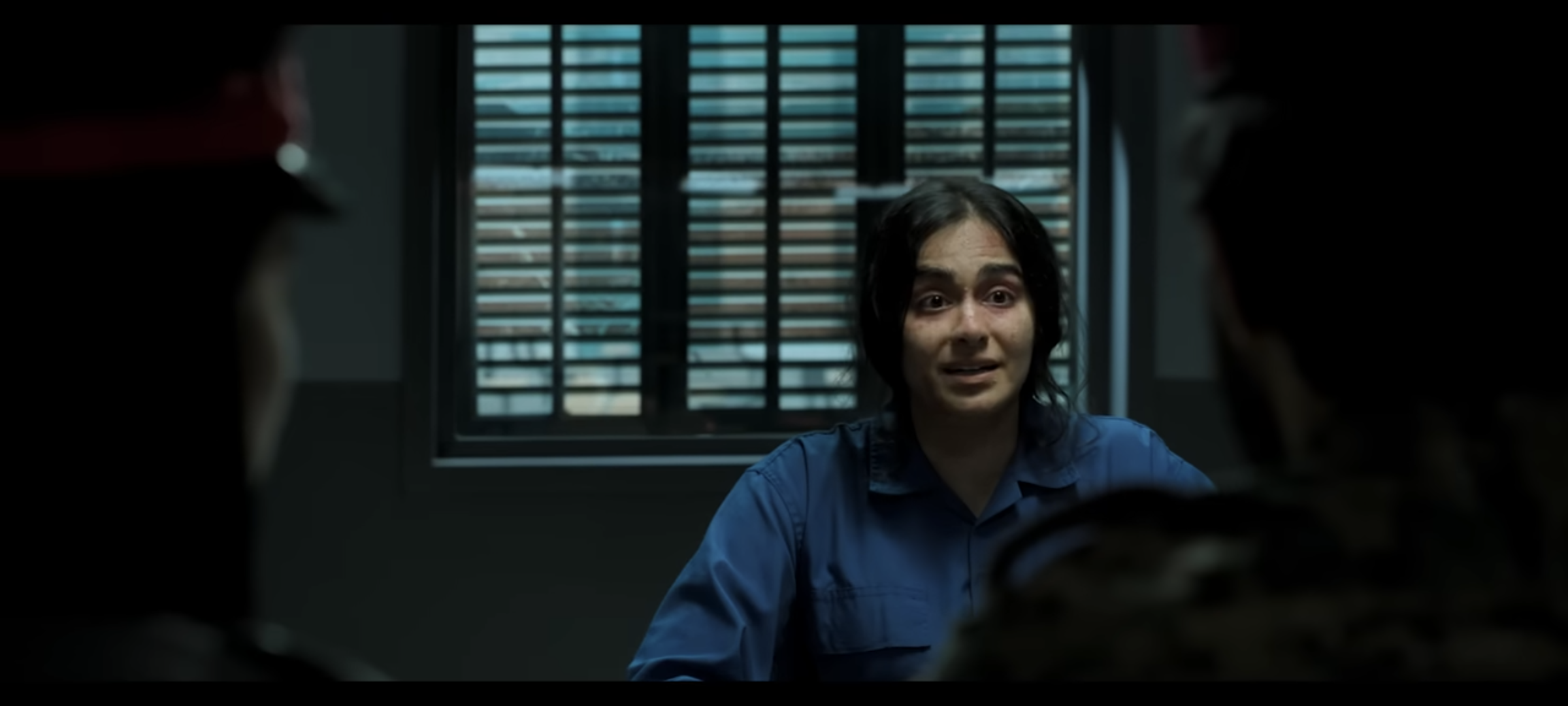Built on half truths, the filmmakers tactfully evade questioning New Delhi but points figures at Thiruvananthapuram, the state capital.

Adah Sharma who plays the role of an ISIS recruit Shalini Unnikrishnan in the movie Kerala story.
From the poor Malayalam diction of characters to the illogical turn of events, and the absolute lack of understanding of Kerala’s social fabric, Sudipto Sen’s much-hyped The Kerala Story depicts a Kerala that is unfamiliar to most Malayalis.
The movie primarily tells the stories of three nursing college students, trapped and radicalised by Muslim men. Sen wanted his audience to believe that the men intended to convert women from other faiths to Islam and recruit them to ISIS.
In the movie three students — Shalini Unnikrishnan, Geetanjali, and Nima Mathew — of a nursing college in the Kasaragod district of Kerala were lured by three Muslim agents of the IS.
In scenes that would cause consternation to most Malayalis, the college’s walls feature the names of Osama Bin Laden and also calls for a free Kashmir.
The 138-minute-long movie unfurls an Islamophobic narrative that demonises Muslims and turns a deaf ear to the numerous stories of religious harmony existing in the state.
The movie is not about Kerala. It is Sen’s Kerala, as he wants it to be.
The Kerala Story is an extension of the narrative the Sangh Parivar wants to spread across the country.
A movie said to be based on true events, cannot be shielded from criticism citing artistic liberty.
The film begins with a disclaimer that it is inspired by true incidents as narrated in video-recorded testimonials of the victims and their families in Kerala — and that these events have been corroborated by experts, news reports, historians, etc.
Ironically the disclaimer continues to state that “the film does not claim accuracy or factuality of historic events”.
The filmmakers want the viewers to watch the movie as a true story, but want to shun responsibility.
The film revolves around two binaries, Muslims who are on a mission to convert and recruit women from Hindu and Christian communities and the women from these communities who fall prey to the recruiters of IS.
Despite the vehement opposition and vigil shown by Islamic organisations to combat the radicalisation of Muslims in Kerala, the movie fails to recognise their efforts — or deliberately forgets to depict such aspects.
In the two-hour-long movie, there is no Malayali character with a Muslim name who is shown in good light. The only characters with Muslim names, who are not antagonised, are the ones who are in IS custody.
The victims of the movie belong to the districts of Thiruvananthapuram, Kottayam, and Kochi. Meanwhile, the antagonists hail from or operate in districts such as Malappuram, Kozhikode, and Kasaragod where there is a significant population of Muslims.
One of the victims of IS agents tells the police that in some of the villages in Kasaragod, Sharia is implemented like in Syria and Yemen. It must be news to people in Kasaragod.
The movie also did not forget to take on communism. Geethanjali blames her father, an atheist and a communist, for her plight.
Soon after Geetanjali realises that she was lured to be converted and trafficked, she complained to her father for following “foreign ideologies” and not instilling “Indian values” in her.
Geetanjali’s father has shades of the real-life Ashokan, whose daughter Akhila, converted to Islam and married a Muslim man. Now, Dr Hadiya, she runs a clinic in Malappuram.
The filmmakers tactfully evaded questioning New Delhi’s failure to raise the proclaimed issue of systematic and forceful conversions with the state government.
According to the movie, Shalini Unnikrishnan (Fathima Ba) and her spouse Ishak join IS by forging passports and other documents.
In a scene, Nima, one of the IS victims, questions a senior police official in Kerala on the lapses by the police in stopping the radicalisation of Malayali Muslim men.
She says that all of Kerala is sitting on top of a timebomb and the unofficial number of women recruited may come to 50,000.
Incidentally, the film was released on the third anniversary of National Commission for Women (NCW) chairperson Rekha Sharma’s terming of “love jihad” as a ticking timebomb about to explode in Kerala!
Yet, no questions were shot at New Delhi about the large-scale conversions and recruitment.
Towards the end, the movie claims that two of the three men — Rameez, Abdul and Ishak — portrayed as IS agents recruiting women from Kerala, are still in large.
“Rameez is running a pizza shop somewhere in Kerala. Abdul is settled in the Middle East, running his travel agency business successfully. Ishak died in a gun battle on the Syria-Turkey border. So far no action has been taken against these perpetrators,” the movie claims.
The audience will get a glance at some newspaper clippings as well as a cover image of the Kesari daily, the mouthpiece of the RSS.
The movie is not expected to make any significant impact on Kerala society; however, it undoubtedly will boost the ongoing hate campaign by Hindutva forces against Kerala and the Muslim community in general.
It is little wonder that Malayalis criticise the movie saying, “This is not our Kerala story.” The movie can only be viewed as propaganda intended to stigmatise Islam and the state of Kerala.

Apr 09, 2024

Apr 09, 2024

Mar 25, 2024

Mar 16, 2024

Jan 05, 2024

Mar 21, 2023